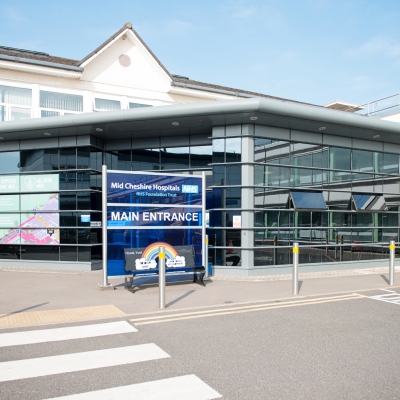In preparation for your upcoming surgery you will have telephone and face to face contact with our Colorectal ERAS Physiotherapist.
The role of physiotherapy within ERAS pathways is important in both pre-operative and post-operative routines. Pre-operative Physiotherapy will focus on:
1. Getting active
2. Improving muscle strength
3. Chest care
- Physical support
- Nutritional support
- Psychological support
It introduces some steps you can take to help you prepare for your upcoming surgery. The actions you take now can help you recover more quickly and reduce the time you spend in hospital.
The benefits of prehabilitation:
- Reduce length of stay in hospital
- Enhance recovery following treatment
- Reduce post op complications
- Improve fitness
- Enhance quality of life
Your activity can be spread out across your day. If you haven’t done much physical activity for a while you may want to get the all clear from your GP before starting.
Your activity can be spread out across your day. If you haven’t done much physical activity for a while you may want to get the all clear from your GP before starting.
Remember the larger muscle groups will show the quickest and largest response to resistance training. These large muscles are used to help you mobilise and the stronger they are before surgery the sooner you will be able to get out of bed following your operation.
For more information please see:
Move more: Your guide to becoming more active. Visit https://www.macmillan.org.uk/cancer-information-and-support/treatment/preparing-for-treatment/eating-well-and-keeping-active
Get active your way NHS. Visit https://


Before surgery it:
After surgery it:
For more information on using the incentive spirometer please click on the link below:
https://

After 8 weeks at home more strenuous activities such as golf, jogging, aerobics and cycling and most other sports can be started but within your physical limits. If in doubt, please check with your Consultant/ERAS Physiotherapist.
Sport and Hobbies:
If you have a stoma you will need to wear a stoma support belt before resuming any sport, please discuss this with your stoma nurse.
For further support and advise on physical activity, please contact the ERAS Physiotherapist on 01270 612047
Driving:
Do not drive for 5-6 weeks after your surgery. You must ensure that you are able to make an emergency stop safely and control your car safely at all times. Please check with your car insurer for any exclusion clauses related to major surgery. Check with you GP if you are in doubt. You can also contact the DVLA for advice on www.dvla.gov.uk or call 0870 600 0301.
Posture, wound healing and massage:
After your operation you should maintain a good posture by not allowing yourself to stoop when you are stood or when walking. Once your wound has healed, you can stretch your abdomen by lying flat on your back and as your discomfort reduces lying on your tummy. This may not be possible if you have a stoma. Make sure your stoma bag is empty before trying this. Massaging the wounds with moisturiser will help to reduce the risk of tight scar formation. Use the palm of your hand to massage the top layer of skin in circular motions.
Contact Details
Sally Tweats - Colorectal ERAS Physiotherapist
Working Hours= Monday, Tuesday and Thursday 08:30-16:30
Contact Details= 01270 612047
